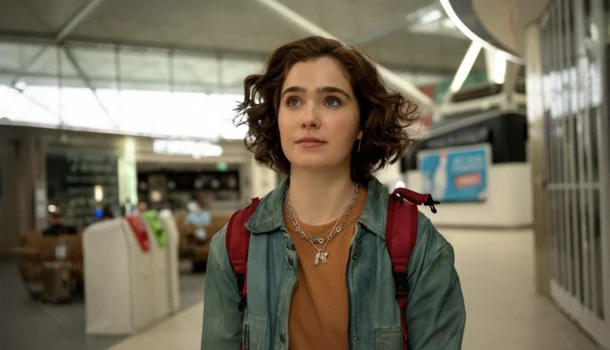Vinicius de Moraes, in his meditation on the transience of emotions, perceived that amorous fidelity does not lie in eternity, but in the intensity with which the fleeting moment is lived. For him, love, no matter how fervent, is doomed to fade, and it is precisely this transitory nature that elevates it. Nelson Rodrigues, less forgiving, argued that the end of a passion does not mark its conclusion but exposes its falsehood from the very beginning. Through the lens of these two masters of the human soul, any attempt to portray love as a predictable event, governed by equations of chance, not only trivializes the experience but strips it of its humanity. “Love at First Sight”, directed by Vanessa Caswill, reveals this flaw by opting for a romantic depiction devoid of depth, coming closer to a mathematical exercise than a genuine immersion in emotional territory. Based on Jennifer E. Smith’s novel, the film sketches a narrative whose lightness reflects not lyricism, but dramatic emptiness, incapable of reaching Vinicius’ reflective density or Nelson’s brutal realism.
The film begins with an overload of logistical details which, instead of drawing the viewer into an emotionally charged universe, transports them into a functional, poetry-less setting. Statistics flood the screen, turning the uniqueness of a romantic encounter into mere mathematical probability. Hadley Sullivan, in haste, trapped in endless lines and inevitable delays, embodies not the heroine of a sweeping passion, but a cog in a predictable and repetitive mechanism. The screenplay, penned by Katie Lovejoy, attempts to justify the romantic meeting through technical data, but this proves not only artificial, but counterproductive. The figures, far from lending plausibility to romantic chance, strip it of meaning, reducing it to a banal event, dictated by the very numerical logic that supports it. The film makes no effort to delve into the uncertainties of desire or the contradictions of emotional surrender; instead, it chooses the safety of formula, forsaking any narrative risk that might, at least, astonish.
It is possible that the superficiality of “Love at First Sight” may resonate with viewers seeking merely a light diversion, devoid of critical engagement. However, this lightness borders dangerously on irrelevance. The plot, reliant on narrative conveniences and dialogue lacking substance, seeks not to challenge but to comfort, reproducing an idealized vision of love that lacks authenticity. Unlike the unpredictability of life, where love often reveals itself amidst pain, doubt, and imperfection, the film clings to a plastic and foreseeable outlook, incapable of stirring any real unease. By choosing the easy path of clichés and sanitized aesthetics, the film not only squanders the opportunity to reflect on the complexity of human bonds, but also underestimates its audience’s intelligence.
More than a matter of taste, the criticism of this film rests on its refusal to question the very concept of love, something both Vinicius and Nelson, each in their own way, accomplished brilliantly. While the former celebrated the intensity of fleeting moments, the latter laid bare the hypocrisy of idealized passion. “Love at First Sight”, in ignoring such nuances, is content to be just another title in the long list of forgettable productions. And ironically, its attempt to quantify love condemns it to the most imprecise fate of all: the mediocrity of something that never dares to be more than the predictable.
Film: Love at First Sight
Director: Vanessa Caswill
Year: 2023
Genres: Romance/Drama
Rating: 7/10

